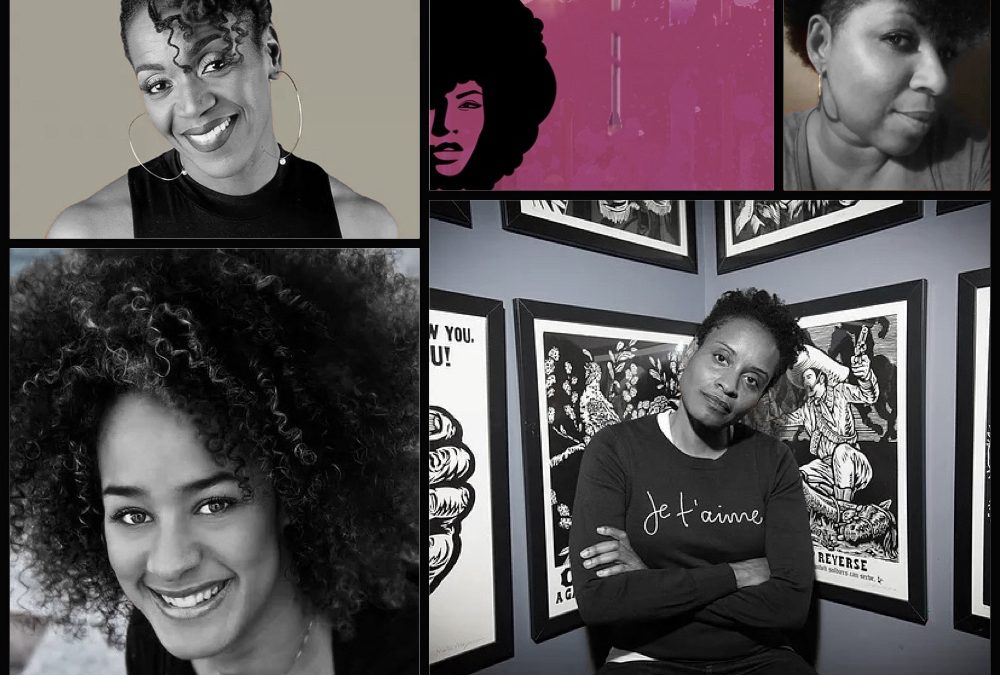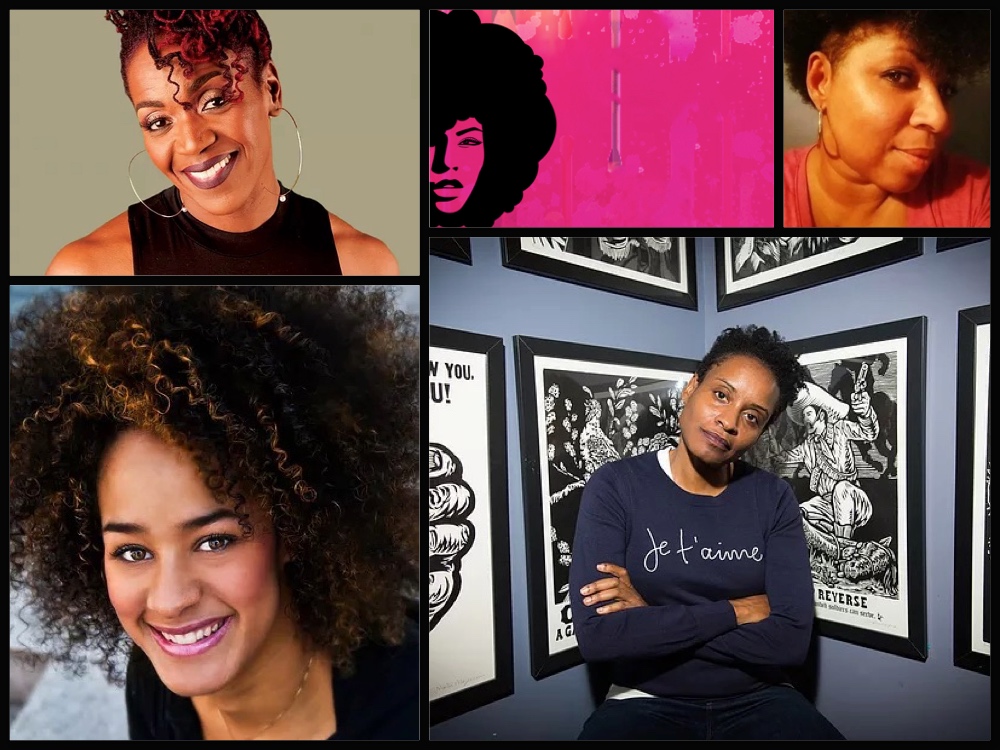Inaugural Black Women in Comedy Fest Turns Up the Volume on Muted Voices


To hear her tell it, the inaugural Black Women in Comedy Festival, coming to Brooklyn this weekend (February 28th-March 3rd, 2019), is really just a dream show for founder Joanna Briley.
“Watching Black women see each other do standup in ways they may never have seen before. I’m gonna be like a kid in a candy store! Because y’all don’t understand. This is for me!” she laughed. “I’m such a fan of comedy. I don’t analyze, I’m there as an audience member.” Briley grew up on Goldie Hawn’s Laugh-In appearances, SCtv, and Saturday Night Live; she still remembers the “Oh, my God, they exist!” feeling that came with seeing a Black female comedian on the screen…on the rare occasion that they appeared. For a fan of the form, getting to watch 36 selected comics take to stages across Bed-Stuy must be a dream. But she sees the festival less as the fulfillment of a personal goal, and more as a means to elevate voices that don’t always get heard.
Fellow festival planner and BWIC headliner Meshelle put it well as she pondered the impact of these shows: “there is some merit to the fact that [this festival will] highlight that there’s not a lot of us that get to the main stages.” In fact, the festival was born after observing that other festivals in New York City didn’t seem to have Black female headliners on their radar. Briley elaborated on the moment that she decided to do something about it:
There was no hostility, there was no anger. But there was [a sense of], “you’re in New York City. You should have Black women in this festival too.” It’s not like we’re hard to find! You’ve got Calise (Hawkins). You’ve got Meshell. You’ve got Pat Brown. There’s so many.” So in that dialogue I said, ‘Let’s create our own festival!’” And that was it!
This strategy wasn’t without risk. Briley did admit to considering a more open naming at first: “I was gonna do women of color, but then I said “no, I want to specifically focus on Black women, because women of color- that’s Latina, that’s East Indian, that’s Pakistani. There are so many women under that umbrella, that I didn’t want us to get mixed or not seen. Here, Meshell jumped in to affirm her choice: “For you to put Black in front of women in comedy is a bold statement. And I think, if anything, it’s not about excluding anyone, but it’s about lifting up a voice that is often muted.”
But she sees another key perk of creating such a festival: to showcase the sheer variety of Black female voices out there. “It’s not a monolith. Even the women that are going to be a part of this festival, they’re all so different. They’re all so different! It takes away that notion that we’re linear. And yes, historically, a lot of it is very much from the same start, but gosh we’re so different. We need the space and the ability to show up on stage differently.”
And show up, they did. The final lineup of women was selected from a pool of applicants that was twice as large, a phenomenon that floored Briley. But she has largely overcome that sense of initial overwhelm, and has replaced it with a kind of collegial determination. When asked what she hopes this gathering of women will yield, she said, “For me, it is a sisterhood that will go past NYC back to where they are and come back to their community and grow. Even if it’s another festival in their community, or just keeping in touch and letting each other know how we’re doing.” The attitude of uniting comics in a sense of community extends from her take on the open mic she hosts, Wednesday Comedy Workout. As Briley shared her desire to reach out and make comics feel welcome in this room, Meshell affirmed that her efforts are working:
There’s something so refreshing about WCW. When you walk in there, it’s like you’ve met your tribe. These people are all tribe members. None of us are the same, but we’re all there to hear each other’s comedic voice.
And it’s that feeling that has permeated all elements of the march leading up to the festival. From the selection of Black-owned venues (near one another for ease of multiple show attendance), to a vibrant online community of accepted comics who have introduced themselves and expressed excitement about their forthcoming lineups, to even the free exchange of ideas—during our interview, Meshell gave Briley a tagline for event promo and T-shirts—it’s been about creating a community of comics who don’t always get the chance to see one another shine.
For a pair of headliners who could only look to Whoopi Goldberg, Ellen Cleghorne, and Marsha Warfield when they were coming up, the idea of twelve times that many women taking the stage in one weekend is nothing short of groundbreaking. With any luck, they’re hoping this energy will far outlast the festival. “What I’m doing is for the generations that come after us. I want them to understand we have a strong comedy foundation, we gotta understand our history,” Briley said. We have to […] be able to embody what it means to be a Black woman who does comedy, even if mainstream doesn’t rock with us. We rock with us.”
You can rock with the Black Women in Comedy Festival February 28th-March 2, 2019, all across Bed-Stuy, Brooklyn. Tickets, lineups, and venue details are available on the festival website.
Read more comedy news.
Amma Marfo
Latest posts by Amma Marfo (see all)
- How Fifteen Years of Pep Talks Helped Joyelle Johnson “Love Joy” Onstage - November 6, 2021
- Ms. Pat’s BET+ Sitcom Flips the Familiar Format Her Way - August 24, 2021
- JFL Awards Highlights! Just For Laughs Honors the Bright Spots of a Largely Unfunny Year - July 31, 2021
